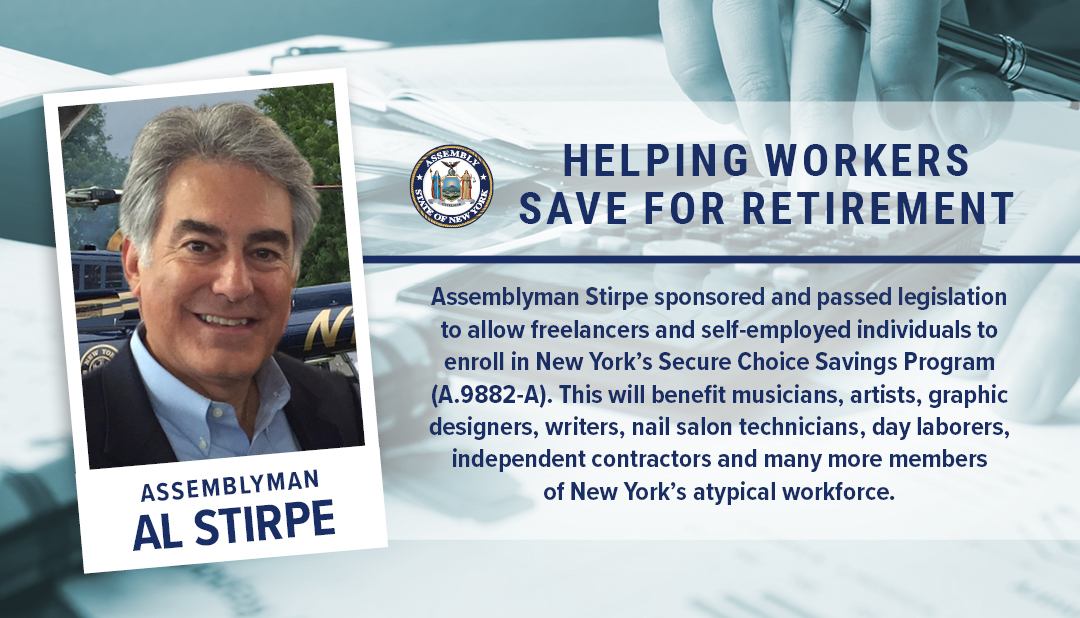Assemblyman Stirpe’s Bill Helping Self-Employed New Yorkers Build Retirement Savings Passes Both Houses
Assemblyman Al Stirpe (D-Cicero) announced that legislation he sponsored allowing freelancers and self-employed individuals to enroll in the New York State Secure Choice Savings Plan (NY Secure Choice) has passed the Assembly (A.9882-A).
“From artists and writers to day laborers and entrepreneurs, New York’s gig economy is rapidly growing, particularly among the younger generation,” Stirpe said. “In the wake of the COVID-19 pandemic, it’s more important than ever that we adapt to our evolving workforce and ensure individuals who choose less traditional career paths still have access to the benefits they need. Allowing freelancers and self-employed workers to enroll in NY Secure Choice will give these individuals a financial lifeline while also ensuring we strengthen our state’s workforce resiliency.”
There are well over 200,000 freelancers across the state, yet nearly 42% of these workers do not have a defined contribution (DC) plan, typically known as a 401(k) or similar retirement savings plan with a current or former employer.[1] This leaves a large sector of the workforce without a readily accessible financial savings program in place in their respective industry, hindering their ability to save for retirement or pay for health care services.
NY Secure Choice was originally enacted in the 2018-19 state budget as a voluntary retirement savings program for employees at workplaces that did not already offer a financial savings plan. Last year, a law was passed requiring certain employers to automatically enroll employees in the state-run program (Ch. 452 of 2021).
This legislation would further expand this program by allowing self-employed and gig workers to enroll in NY Secure Choice as well as provide these individuals with informational materials about how to opt in and out of the program. This measure was crafted with input from the business community and will go a long way toward helping gig workers save for the future, Stirpe noted.

